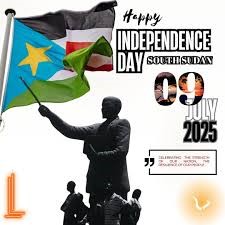By William Madouk
United Nations Human Rights Commission laments the dysfunction of the judiciary system in South Sudan that leads to an increase in violence.
Commissioner Carlos Castresana Fernández said the reoccurrence of gross human rights violations cannot be stopped without having meaningful and effective justice.
“South Sudan’s judiciary is not functioning. It is severely under-resourced, lacks the means to be impartial and independent, and in most parts of the country it has no effective presence,” Castresana said.
He added that they visited Jonglei state but to their disappointment, no high court judge is in place, making the prosecution of rape and murder cases virtually impossible in ordinary courts.
“The persistence of widespread sexual and gender-based violence, including the abductions, cannot be separated from the fact that rule of law institutions is not in place to address these crimes,” he noted.
According to Castresana, the Government has resources available to fund the development of the judiciary, but courts receive only a tiny fraction of the national budget.
“While State revenues are diverted by elites. To address the persistent human rights violations, justice institutions must be properly funded.” He continued “Transitional justice processes, too, are an essential part and parcel of the nation’s healing.”
He added that “If the country does not have the opportunity to reckon with its past, the cycle of violence is likely to reoccur.”
Commissioner Castresana hinted that Truth, Reconciliation, Reparations and Accountability are indivisible dimensions of transitional justice, and cannot be separated in the interests of elites, or political expediency.
“During our visit, another concern we heard expressed is that there is not yet an independent referee to address disputes that may arise from electoral processes,” he stressed.
“This is cause for concern. Without a referee to resolve disputes peacefully, aggrieved parties may resort to violence,” he noted.
In December 2023, Chief Justice Chan Reech Madut lamented the lack of judges to handle the backlog of cases across the country.
However, he hinted that the judiciary system had a plan to hire more judges to handle cases in the awaited supplementary budget.
“In our plan, we have for this fiscal year budget – we make suggestions for appointment of judicial assistants, about 70 of them and we have received 500+ applicants,” he explained.
Justice Reech revealed that in his interaction with the ex-minister of finance – he agreed to put that into a supplementary budget to cater for 100 judges that would be appointed this year.
He added that mobile courts were introduced because of the lack of enough judges, and they are sent to states or areas that have accrued criminal cases to handle them for specific period of time.
Most of the states have been appealing to the judiciary to equip the area with a mobile court to handle the backlog of cases as well as build court institutions.



